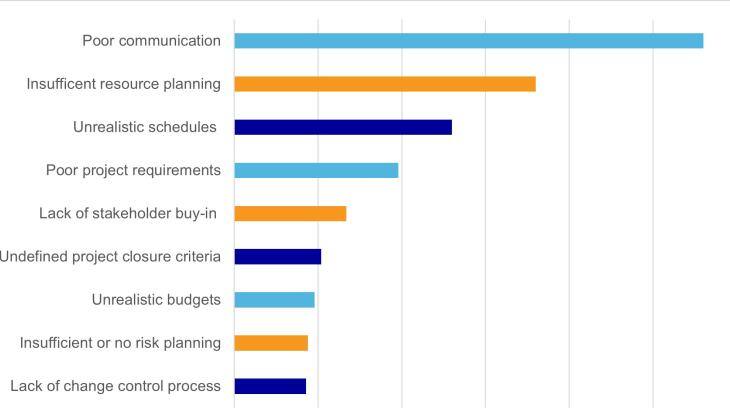Q1: You’ve been involved in many major capital projects. Do you ever get to start a project, enjoy...
Why do projects go wrong?

It’s difficult to know where to begin because there are so many flaws. First and foremost, there is no traceability. Who was polled, how was the poll performed, what was the sample size, and who were the respondents’ demographics? What is the foundation for the claim that “Most” ventures fail? Let’s be clear: it appears that more than half of all ventures fail. That’s a bold claim, but there’s no evidence in this graphic of what success or failure truly means, let alone how to measure it. Aside from all of these issues, one thing is certain. These posts are resonating with people, and they’re quickly becoming ‘common knowledge.’ There has to be a reason they’re being shared and reshared so much.
We’d want to focus on two points: first, many LinkedIn users may be seeing something similar for the first time, but it’s nothing new. We’ve been following this kind of ‘research’ for decades. The first example we saw was at a conference where speakers cited research from 1972 that demonstrated the following reasons why projects fail:
- Unrealistic expectations
- Uncertainty or insufficient requirements
- Insufficient support from upper management
- Planning that is either insufficient or excessive
- Resources are scarce.
- Changes that aren’t well-considered
- End-user input is lacking.
- Control that is either insufficient or overbearing
- Delegation or supervision issues
- Project closure is either poor or non-existent.
It’s a ‘spot the difference’ game. In the last 50 years, not much has changed.
When you read through these lists, you’ll see that nothing isn’t addressed on the first day of even the most fundamental project management courses. The demand for realistic expectations; the requirement for end-user input to establish excellent requirements; the requirement for stakeholder participation; and the requirement to effectively close the project.
“Why hasn’t anything changed despite decades of investment in project management skills?” ”
Second, it’s critical to understand that these are symptoms, not causes, of project failure. When there are underlying issues that prevent initiatives from succeeding, these are the things you notice.
Finally, businesses must cultivate a culture that permits initiatives to succeed. Not only among individuals who are directly involved in projects but throughout the organization, there must be a common understanding of what it means to own and manage projects. Those who are directly involved must be allowed to put excellent practice into effect. Too many investments in project management development programs prevent employees from putting what they learn in class into practice.
These are some of the core reasons for failure, as evidenced by the symptoms found in questionable clickbait polls. Nothing will change unless we start addressing the core problems.
Here at CourseMonster, we know how hard it may be to find the right time and funds for training. We provide effective training programs that enable you to select the training option that best meets the demands of your company.
For more information, please get in touch with one of our course advisers today or contact us at training@coursemonster.com
